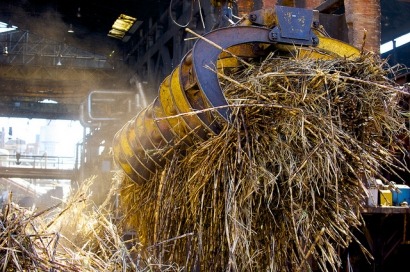
The new partnership, named Raízen, will operate in Brazil, one of the world's fastest-growing markets. Combining Shell’s global network and retail muscle with Cosan’s technical expertise in bio-fuels, the new company is expected to produce and sell over 2 billion litres a year of ethanol made from Brazilian sugar cane.
The partnership marks the first time Shell has moved into the production of bio-fuels. In a written statement the two companies said deal with Cosan is a major development in Shell's strategy of investing for selective growth in its fuels business.
Raízen will distribute biofuels and over 20 billion litres of other industrial and transport fuels annually through a combined network of nearly 4,500 Shell-branded service stations. In Brazil it becomes the third largest fuels company. Plans would extend the company's reach in future years to export more ethanol to other key markets.
"We are building a leading position in the most efficient ethanol-producing country in the world,” said Peter Voser, Shell Chief Executive Officer. "Low-carbon, sustainable bio-fuels will be increasingly important in the global transport fuel mix."
The joint venture also combines Shell's expertise and technology partnerships in advanced biofuels with Cosan's experience in the commercial production of low-carbon biofuels. This has the potential to accelerate the commercial production of biofuels from crop waste and inedible plants, the companies said.
Raízen's 24 mills can process up to 62 million tonnes of cane into sugar or ethanol each year, with the flexibility to adapt to market demand.
"This is a turning point in the search for alternative energy sources," said Rubens Ometto Silveira Mello, Cosan's Chairman of the Board. "Raízen is one of Brazil's largest companies and is ready to offer international markets a clean, renewable and economically viable solution."
New energy policies in Europe and the USA are calling for more renewable, lower-carbon fuels for transport. Bio-fuels make up around 4 percent of transport fuel in Europe, and 3% in the USA. Globally bio-fuels currently meet around 3 percent of road-transport fuel demand.
Shell expects this to rise to about 9 percent by 2030, the companies said.
For additional information

